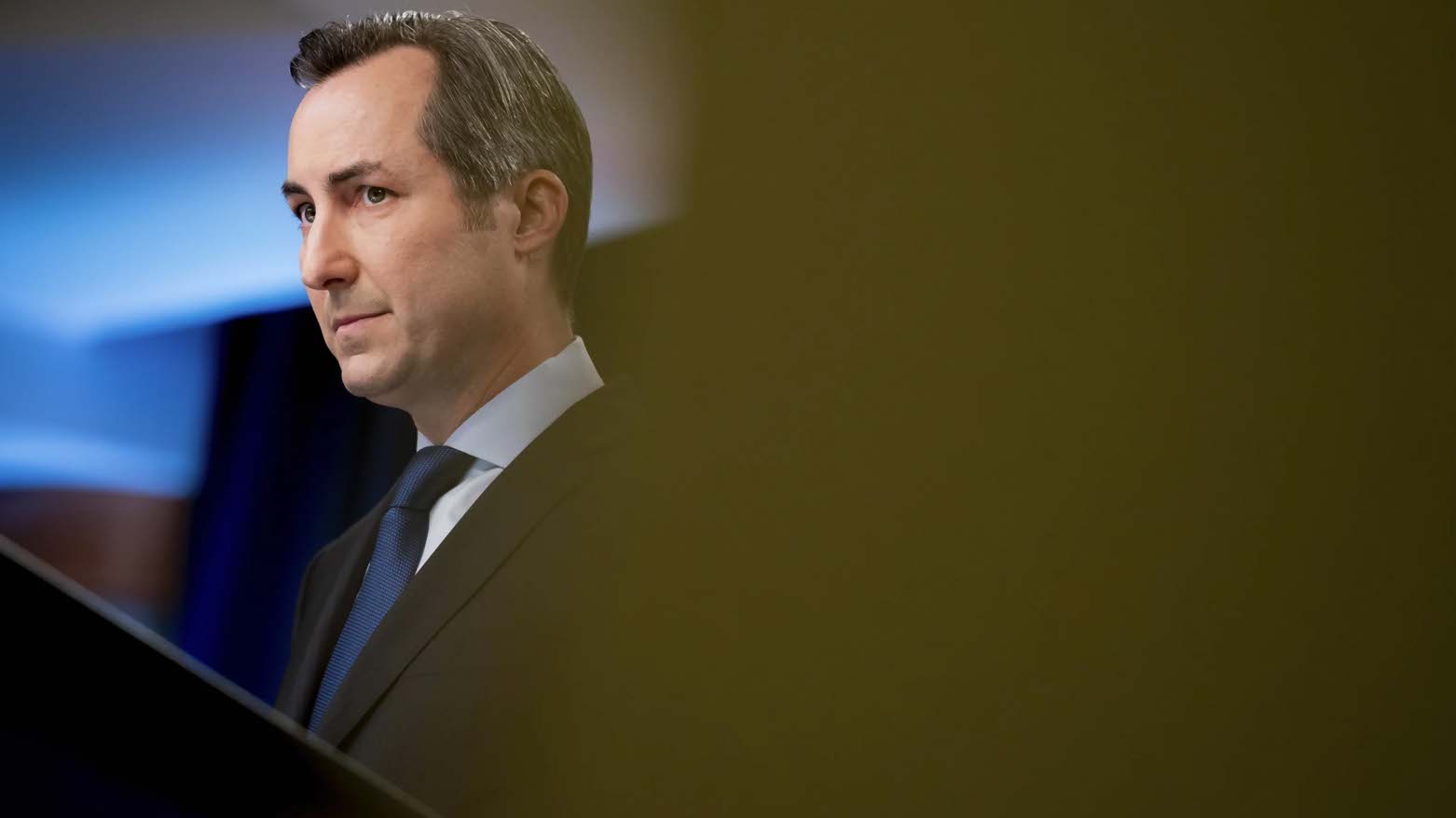U.S. Denies Iran Foreign Minister’s Bid to Visit Wash DC

WASHINGTON DC, United States (Kurdistan 24) – State Department Spokesperson Matthew Miller explained on Monday that the U.S. had denied a request from Iran’s Foreign Minister to travel from New York, where he is attending the opening of the UN General Assembly, to Washington DC.
Asked about the issue at a State Department briefing, Miller confirmed that the request had been made, as he stated that the U.S. was obliged “to allow Iranian officials and other officials of foreign governments to travel to New York for UN business, but we do not have an obligation to allow them to travel to Washington D.C.”
Miller’s statement follows on earlier moves by the Biden administration that seemed to suggest it was taking a conciliatory approach toward Iran, but which drew significant criticism from Republicans.
U.S.-Iran Prisoner Exchange, Release of $6 Billion
They include the release of $6 billion in frozen Iranian funds in South Korea in the context of a prisoner exchange, in which Tehran released five unlawfully detained American citizens. In turn, the U.S. released five Iranians convicted of sanctions violations—although three of them opted to remain in the U.S.
Read More: U.S. and Iran to Swap Prisoners; Iran to Receive $6 billion in Frozen Funds
That deal, concluded last week, prompted what The New York Times described as “intense criticism” from Republicans, who charged that “releasing billions in oil revenue amounts to paying a ransom and would lead to the taking of more hostages.”
In addition to that issue, the Biden administration was also strongly criticized by three Republicans on the House Foreign Affairs Committee for its failure to prevent pro-Iranian groups in Iraq from abusing the Kurds there.
Above all, Iranian proxies had blocked Baghdad from providing the Kurdistan Regional Government (KRG) its agreed upon share of the federal budget, at a time when Kurdish oil exports through the pipeline to the Turkish port of Ceyhan remain blocked.
The suspension of both sources of funding caused grave problems for the KRG, and the Congressmen wrote a letter last week to President Joe Biden. They urged him “to end the unacceptable treatment of Iraqi Kurds and the Iraqi Kurdistan Regional Government by Iran-aligned elements in Iraq.”
Read More: Key Congressmen Call on Biden to Protect KRG against Abuse from pro-Iran Groups
Since then, the Biden administration has responded by saying it would focus on restarting KRG oil exports.
Iran Dangles Renewal of Nuclear Deal
In January 2021, when the Biden administration took office, its primary focus in regard to Iran was renewing the 2015 Iranian nuclear deal, concluded by President Barack Obama, by abrogated in 2018, by his successor, Donald Trump.
However, after more than a year of negotiations, in which the European Union (EU) acted as intermediary, it became evident that Iran just increased its demands, as an agreement seemed near. The negotiations ended, and in December 2022, Biden actually declared the nuclear deal was “dead.”
Read More: Joe Biden: Iranian nuclear deal is “dead”
Nonetheless, it may be that Washington, the EU, or both would still like to see if it is possible to revive the nuclear accord, formally known as the Joint Comprehensive Plan of Action (JCPOA.)
That is the prospect that Iranian Foreign Minister Hossein Amir-Abdollahian seemed to dangle, while in New York.
On Saturday, Amir-Abdollahian met UN Secretary-General Antonio Guterres. According to a statement from the Iranian Foreign Ministry, he told Guterres that Iran continued to exchange messages with the U.S., “while if the other parties are ready, we are serious about returning to the JCPOA.”
However, as Miller seemed to suggest on Monday, the U.S. either does not credit the Foreign Minister’s account or is not interested in pursuing the issue, at least at this time.
1980s: Arms For Hostages
There is precedent for Washington to make short-term deals with Iran, which proved counter-productive in the longer term. Since U.S. officials are well-aware of this background, the Biden administration has good reason to tread carefully.
The Iranians are excellent negotiators. The name for the Middle Eastern market in which bargaining decides the price—the bazaar—is, in fact, in its origins, a Persian word.
Possibly, Tehran thinks it can reach the kind of deal with Washington that it did in the 1980s. Then, the U.S., under President Ronald Reagan, along with Israel, became involved in selling sophisticated arms to Iran, which was then fighting Iraq in an eight-year long war, triggered by Saddam Hussein’s assault on his eastern neighbor.
The U.S. arms sales led to the release of Americans who had been detained by pro-Iranian factions in Lebanon during that country’s civil war. But they also led, predictably enough, to the abduction of more Americans.
It was Israel that initiated the arms sales, arguing that the U.S. would promote moderates in Iran by such weapons transfers. In addition, there was another advantage for the Reagan administration.
It used the money from the arms sales to fund anti-regime guerrillas, known as Contras, who were fighting the newly-established Communist government in Nicaragua.
In 1986, however, the covert operation became public, and that resulted in a major scandal, which became known as “Iran-Contra.” It was of dubious legality and entirely contrary to the declared policy of the Reagan administration. Soon after this became public, the arm sales ended.
